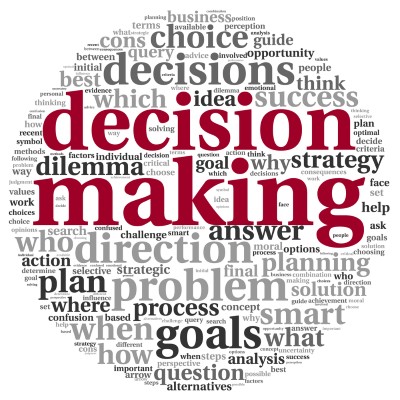
Making decisions is an inherent aspect of life. The quality of your decision-making abilities can have an enormous impact on your the professional and personal life. Making smarter choices is, however, not always simple. The process requires analysis and ability to deal with the uncertainty. In this article we'll go over seven suggestions that can aid you in making better decisions and improve your decision-making processes.
The decision-making process must be defined:
Being aware of the many components involved in the decision making process is essential to make better choices. To do this it is essential to identify the issue or opportunity to be resolved. Clearly defining the decision-making process creates a framework for your thinking which helps you organize your actions and thoughts. When you really want to find out effective information on decision making, you have to browse around pickerwheel website.
Gather relevant information:
Before making a decision, it is important to collect as much details as is possible. It is essential to conduct research, collecting data in order to analyze the advantages and disadvantages associated to each option. Having a solid foundation of information enables the user to make informed choices by relying on data rather than assumptions.
Consider multiple perspectives:
Consideration of multiple viewpoints is key to better decision-making. Get input from people who may have different viewpoints and perspectives. When you look at different viewpoints and perspectives, you will gain a better understanding of the situation and are able to make better choices.
Evaluation of possible outcome
When making decisions in the course of making decisions, you must consider the possible outcomes. Consider the potential consequences and weigh the benefits and risks of each choice. The evaluation will help you determine the potential issues and take an informed decision.
Your gut is the best guide.
Critical thinking is essential and think about different perspectives It's important to trust your gut instinct. Intuition can give useful information to complement an analysis that is rational. Use both logic and intuition to make a holistic decision.
Take a choice and then take action:
At some point you will need to take your decision and act. Decide on a path to take that is in line with your objectives and information collected. Procrastination or indecisiveness can result in missed opportunities. It's therefore crucial to be confident and move forward.
Make the right decisions based on your experiences:
It is important to reflect on your past options to be able to improve your future choices. Evaluate the outcomes of previous decisions take note of lessons learned and incorporate those insights into your decisions-making process. Professional and personal development relies on constant development and adaptation.
Seek feedback and learn from other people:
You should seek feedback in order to enhance your ability to make decisions. Accept constructive criticism, and be open to different viewpoints. Learning from the experiences of others, you broaden your knowledge and get new insights that can inform your decision-making process.
Flexibility and flexibility:
The ability to adapt and remain flexible is vital when making decisions. Situations can change or new data may emerge. The ability to adapt your choices as needed will allow you to be flexible and have the capability to manage uncertainties effectively.
Practice patience and resilience:
Decisions can often have unexpected and challenging consequences. If you are confronted with the consequences of your choices, practice patience and resiliency. You can learn from failures and adapt your approach in the event of a need. Be persistent. Building resilience strengthens your decision-making abilities over time.
Summary:
Making better choices is a talent that can be honed with practice and mindfulness. It is possible to improve your capacity to make decisions by defining your decision-making process by gathering data, thinking about multiple perspectives, evaluating possible outcomes, following your instinct making a decision, and then learning from your past mistakes. Each decision is an opportunity to develop and gain knowledge.